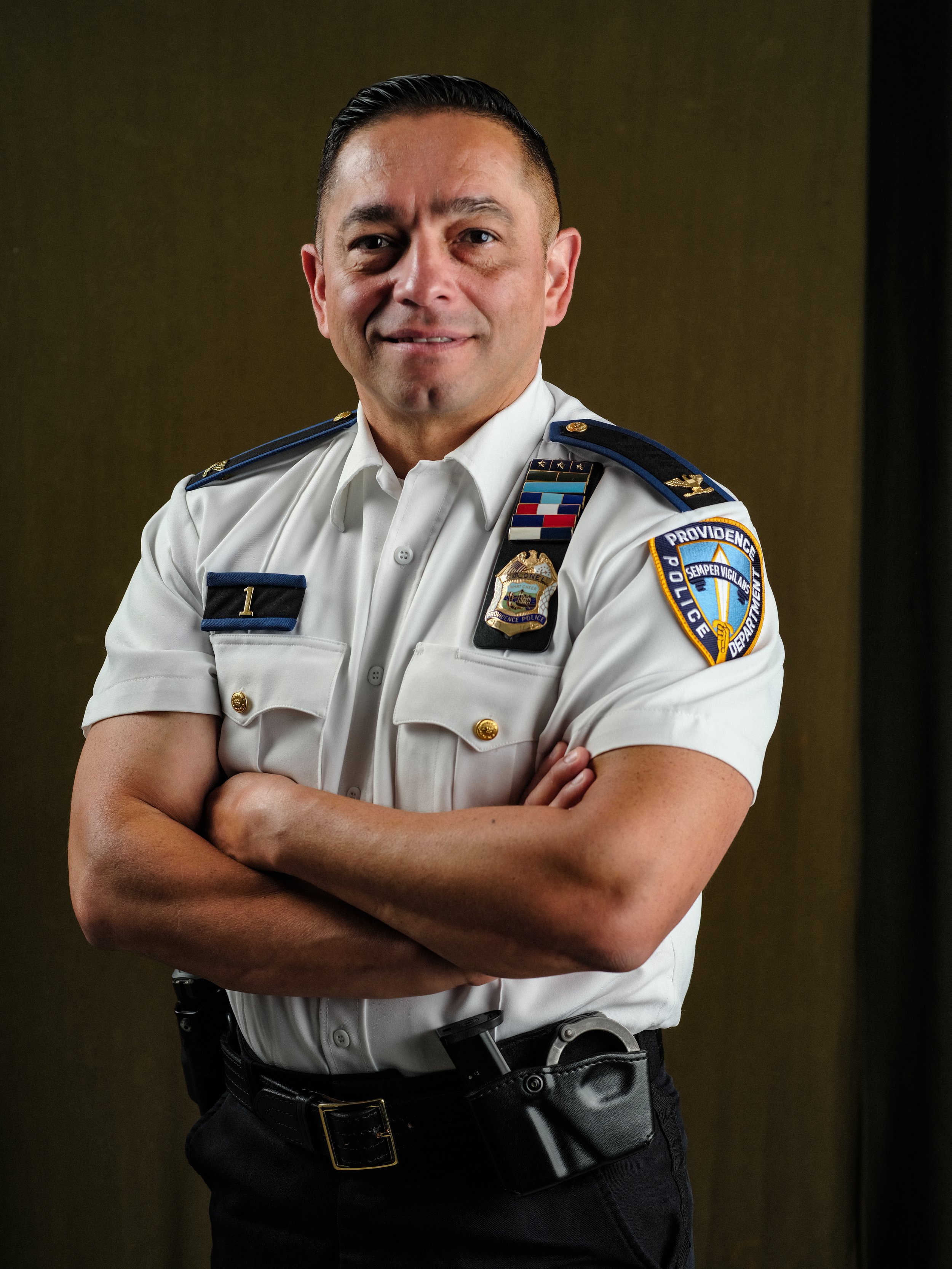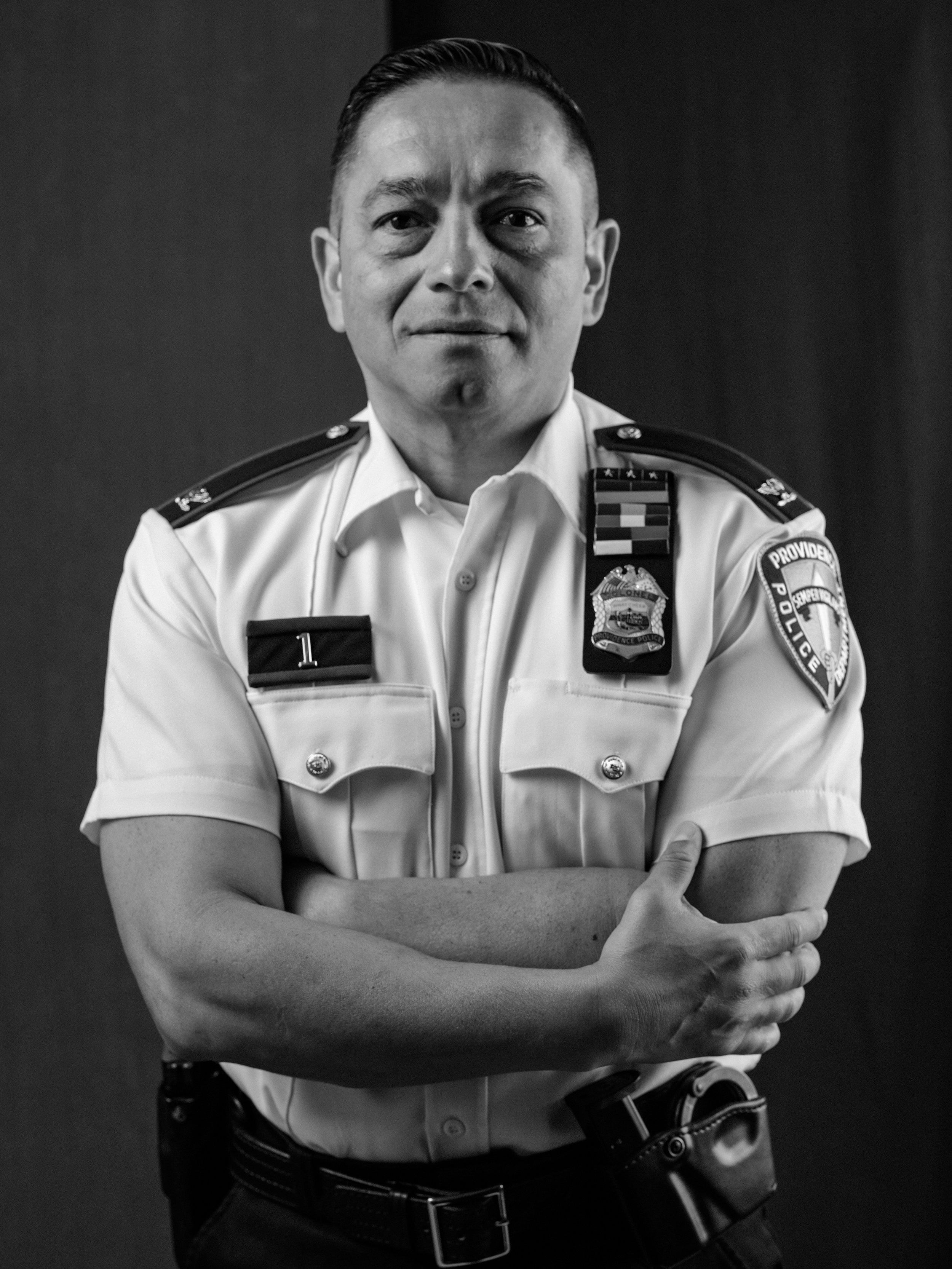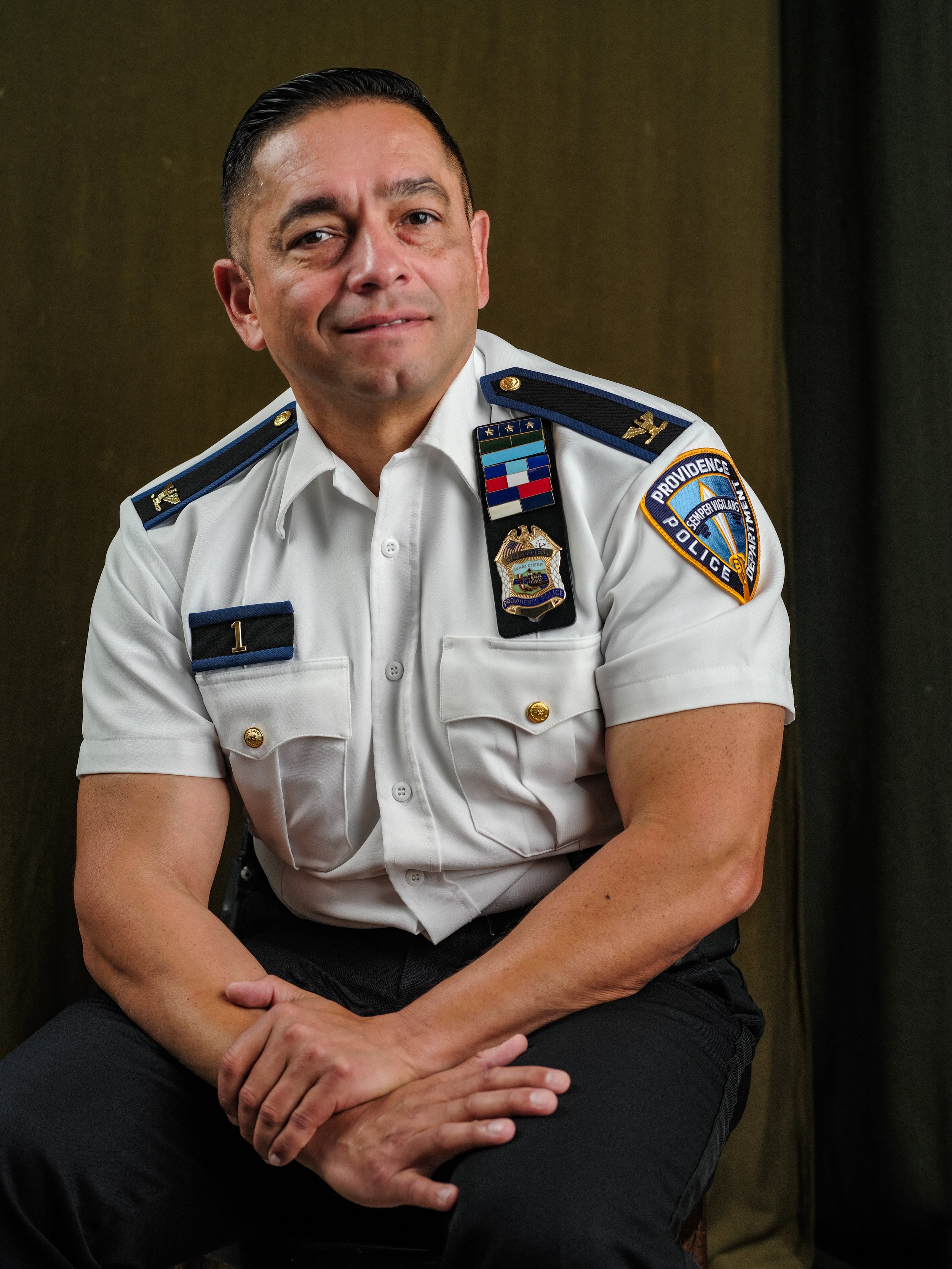From the Ring to the Badge
At The Slate Studio, Jonathan Pitts-Wiley's lens captures more than just an image - it reveals the fighter behind the badge. In the gritty boxing world, a young Oscar Perez learned lessons that would shape his future far beyond the ring. "Being a boxer, I always relate everything to boxing," Perez reflects, his voice carrying the weight of countless matches. "Getting in the ring, you want to win the fight because everybody else is watching with the audience, and they're pushing for you."
Little did Perez know that this mentality would propel him to make history as the first minority chief of the Providence Police Department since its establishment in 1864. His journey from the boxing ring to the chief's office is a testament to perseverance, vision, and the power of representation.
As Perez transitioned from boxing to law enforcement, he carried with him the fighter's instinct to push through challenges. The daily grind of police work presented its own form of sparring, with each shift bringing new obstacles to overcome. Rising through the ranks, Perez faced more than just the usual job pressures, he faced the added weight of being a trailblazer in a department with a long history of homogeneous leadership.
"I want to leave a legacy," Perez states firmly, his words echoing the determination of a boxer stepping into the ring for a title fight. This drive to excel isn't just about personal achievement; it's about opening doors for future generations of minority officers and leaders.
The journey to the top was undoubtedly filled with challenges. Rising through the ranks of a police department requires not only exceptional skill and dedication but also the ability to navigate complex political and social landscapes. For Perez, this likely meant constantly proving himself, breaking stereotypes, and demonstrating his capability in the face of potential skepticism or bias.
One of the most significant challenges Perez faces is the delicate balance between supporting his officers and maintaining accountability to the community. He speaks of the importance of transparency, especially in situations involving officer misconduct or controversial incidents. "If the cop needs to go to jail, then he's got to go to jail. If the cop needs to be retrained, whatever decision you're going to make, come on and say, and I'll take the hit," Perez asserts, demonstrating his commitment to fairness and accountability even when it might be unpopular within the department.
This stance likely creates tension at times, as Perez must navigate between his officers' expectations and the community's demands. The struggle to maintain morale within the department while also pushing for necessary reforms and accountability is a constant balancing act.
Perez's approach to overcoming these challenges is multifaceted. He emphasizes the importance of clear communication within the department and with the community. He established a police advisory board and cultivated partnerships with community leaders to ensure multiple voices are heard and to help disseminate accurate information during times of crisis.
Perez has developed thick skin in the face of public criticism and social media backlash. "At the end of the day, it's just noise," he says, reflecting on how he deals with negative attention. This resilience, likely honed through years of facing and overcoming obstacles, allows him to stay focused on his mission despite adversity.
Perhaps one of the most significant struggles Perez has faced is the challenge of changing the culture of policing itself. In an era of increased scrutiny on law enforcement practices, particularly regarding the treatment of minorities, Perez is working to instill a philosophy of compassionate policing. This involves changing practices and mindsets, requiring persistent effort and often facing resistance.
To overcome this, Perez leads by example, emphasizing the importance of treating both officers and community members with respect and compassion. He's focused on modernizing the department, understanding that as criminals innovate, so must law enforcement. "We should be right there, hand to hand, making sure that we have the tools necessary," he asserts, highlighting his commitment to keeping the department at the forefront of law enforcement practices.
Throughout his journey, Perez has likely faced moments of doubt, criticism, and opposition. Yet, he's persevered, driven by a clear vision of his goal. "I want to be remembered as a compassionate leader that really loved his police officers, respected the work they did, held them accountable, but also the community appreciated how transparent he was, how approachable he was," Perez says, outlining his ultimate goal.
As you sit across from Perez, you can see the weight of his experiences etched in the lines of his face. His voice takes on a steely resolve as he speaks about the challenges that come from outside the department.
"You know," he pauses, reflecting on what he’s about to say, "This job is not just about managing officers. It's about facing the court of public opinion every single day."
You can almost feel the sting of the criticisms he's endured, the social media firestorms he's weathered. But then, a small smile plays at the corner of his mouth. "At the end of the day, it's just noise," he says, "I'm used to it. You gotta get right in front of it. And actions?" He pauses, letting the words hang in the air. "Actions speak louder than words."
As you listen to Perez, you can't help but be moved by the enormity of his journey. Every step has been a fight, from the sweat-soaked boxing rings of his youth to the pressure cooker of the chief's office. But it's a fight with purpose, with vision.
You see it in the set of his shoulders, the fire in his eyes - this isn't just about him anymore. It's about every officer under his command, every citizen on the streets of Providence. It's about reshaping what policing can be and should be. "Compassionate, professional policing," he says, the words ringing with conviction. "That's not just a goal. It's a necessity."
As Perez speaks about his legacy, you see the future he hopes to leave for future generations. This isn't just about policies or positions. It's about blazing trails, about standing tall so others can climb higher. It's about changing not just rules but hearts and minds.
Oscar Perez isn't just leading a police department. He's leading a revolution in blue, one compassionate, professional action at a time. And as you step out into the streets of Providence, you can't help but feel that the city - and the future of policing - is in good hands.



Portraits by Jonathan Pitts-Wiley

